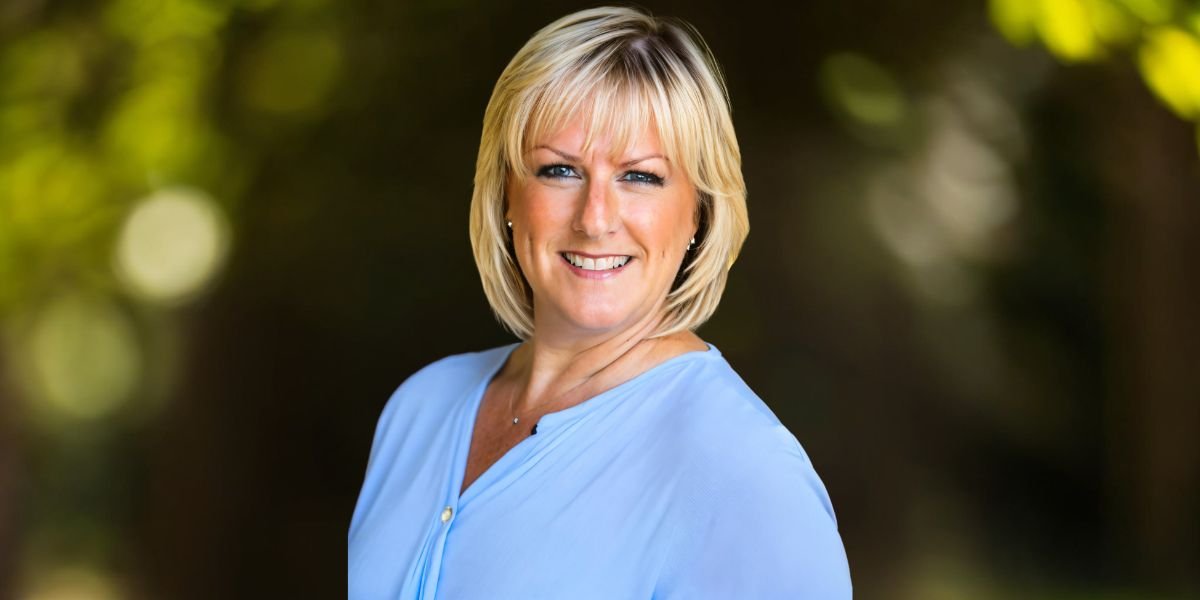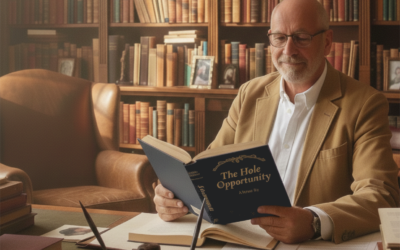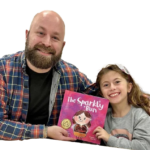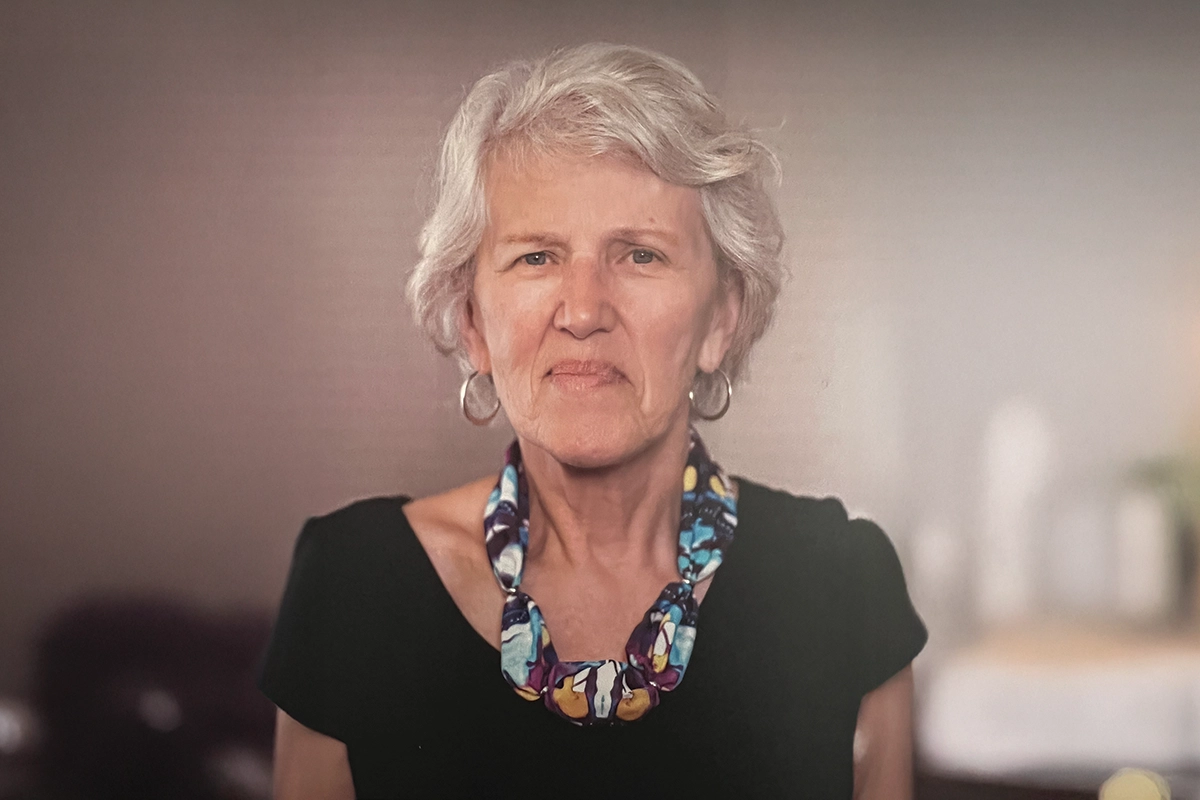Shelly Stricker Transforms Pain Into Power Through Emotionally Gripping Stories Of Healing And Hope

PHOTO: Author Shelly Stricker, whose novels of love and redemption shine with raw emotion and strength.
A Courageous Author Who Turns Life’s Deepest Scars Into Stories Of Strength, Redemption, And Unbreakable Love.
Shelly Stricker channels her personal journey of survival and resilience into deeply emotional novels that explore trauma, redemption, and the healing power of love, inspiring readers with authenticity and heart.
Shelly Stricker is a powerful voice in contemporary romance and suspense fiction, blending emotional depth with a fearless honesty that leaves readers moved and inspired. Through her books, she confronts themes of trauma, betrayal, and redemption with striking authenticity—turning pain into purpose and darkness into light. Her transition from mortgage broking to writing was born from the desire to heal, to create, and to remind others that survival is possible. Each story she pens reflects courage, compassion, and hope, offering a lifeline to readers navigating their own battles.
Shelly Stricker’s writing is raw, heartfelt, and courageous—her stories illuminate the path from darkness to healing with unflinching honesty and hope.
At Mosaic Digest magazine, we are proud to feature Shelly Stricker—an author whose work doesn’t just tell stories; it transforms lives. Her novels, including Falling Into You and The Sin of a Child, showcase her rare ability to turn heartbreak into healing, crafting characters who embody resilience and love in its truest form.
What inspired you to move from a career in mortgage broking to writing such emotionally charged and suspenseful stories?
I’ve spent decades in mortgages, helping people achieve the dream of homeownership, and I still love that work. I write nights and weekends—finding time whenever I can—because there was always a part of me that needed a creative outlet, a way to explore emotions and struggles that often remain hidden. Writing became that outlet. My solace.
What inspired me most was recognizing how many people carry silent battles—trauma, loss, betrayal—and how isolating that can feel. I also began writing to heal from my own past abuse, and it quickly became the best way to process those experiences. Through my stories, I wanted to shine a light on these struggles, creating characters who face their demons yet find strength, love, and redemption. Writing transformed my own life lessons into journeys of hope and survival—and in doing so, I found healing for myself and the ability to show others that they, too, can survive.
Many of your books explore themes of secrets, betrayal, and redemption. Why do you think readers are drawn to these kinds of narratives?
I think readers connect so deeply with those themes because they mirror the complexities of real life. When readers see characters navigating those same struggles, it creates a powerful sense of recognition and validation.
But what keeps them turning the pages is the promise of redemption. It’s the reminder that no matter how dark a moment may be, there’s always a way forward—toward healing, forgiveness, and love. Watching a character rise stronger than before allows readers to believe in their own resilience, and that sense of hope is something we all need.
Your characters are often strong yet vulnerable, with a touch of sass. How do you strike that balance when creating them?
For me, strength and vulnerability go hand in hand. True strength doesn’t mean never breaking—it means facing the cracks, the pain, and still choosing to stand back up. My heroines carry scars, but that makes them real. I want readers to see women who fight their demons, stumble, and sometimes fall apart, yet rise again with even greater resilience.
The sass comes naturally—it’s the spark that shows they’re not defined by their pain. A witty remark or a bold comeback can be just as powerful as a moment of quiet vulnerability. It reminds us that even in struggle, there’s room for humor, for fire, and for joy. That balance makes them relatable and unforgettable, because in many ways, it mirrors who we are in real life.
“True strength doesn’t mean never breaking—it means facing the cracks and still choosing to stand back up.” – Shelly Stricker
Real-life experiences play a role in your storytelling. Could you share how much of your personal life or observations influence your plots?
When I weave in pieces of what I’ve lived—even small details like a lingering glance, the weight of silence, or the exact moment my heart broke—it breathes authenticity onto the page. Readers can feel when something is drawn from real emotion. Beyond my own journey, I’m always observing—the way people love, hurt, survive, and grow Those observations help me create characters who feel layered and authentic. Even when the plots are fictional, the emotions are real. That blend of lived experience and careful observation allows my stories to resonate, because at their core, they’re about what it means to be human: to struggle, to fall, to rise, and to love again.
Which of your novels has been the most challenging to write, and what made it so? The most challenging novels I’ve written are Falling Into You and The Sin of a Child. Both address the sexual abuse of a child—a topic that is deeply personal to me, as it mirrors experiences I faced in my own childhood. Writing these stories was emotionally intense, revisiting memories and feelings I had long buried.
I wrote these books not just to tell a story, but to offer hope. I wanted readers who may have faced similar pain to know they are not alone and that there is light on the other side. Healing is possible, and sometimes that means asking for help. Writing them was painful yet rewarding, transforming my struggles into stories of survival and love.
“Healing is possible, and sometimes that means asking for help.” – Shelly Stricker
How do you manage to write about dark, painful subjects while still leading readers towards a heartfelt happily-ever-after?
Because I’ve lived through the dark and painful, I know what it feels like to stand in that shadow and wonder if the light will ever return. I’ve survived moments that nearly broke me, and in the process, I discovered a strength I didn’t know I had. I learned how to stand up for myself, and in time, I found the man who not only stood beside me, but also stood up for me when no one else—including my own family—would.
God can heal what’s been broken, and I want my stories to carry that same truth. Even when I take readers through the darkest valleys, I want them to feel hope flickering in the distance. My characters may wrestle with demons and heartbreak, but I always guide them toward a love that heals—a reminder that no matter what we endure, happily-ever-after is possible.
If one of your books were adapted into a film or series, which would you choose and why?
If one of my books were to come alive on screen, it would be The Sins of a Child. That story breathes with shadows, with secrets that scrape at the soul. It isn’t tidy, it isn’t gentle—it’s raw and haunting, with twists that catch you off guard and leave you gasping.
Samantha was just a little girl—her innocence stolen by the one who should have protected her; her stepbrother. Oliver, just a boy himself, standing frozen as he watched his parents’ lives stolen before his eyes. Two children marked by violence, tethered by pain neither of them deserved. From that moment, he carried a vow: protect her. Even if it meant hiding in the shadows, even if it meant sacrificing himself.
He became her calm in the storm. A fleeting touch of safety in a fearful world. She never knew it was him who stood guard when her demons prowled. She never knew he was her shield. And he never told her that his own secrets could cut just as deep.
Years later, when the truth clawed its way into the light, it shattered her. Betrayed by the only man she thought she could trust, Sam ran—straight into the arms of the past she had tried so hard to escape. And Oliver, bound by his own sins, knew if he didn’t find her, he’d lose more than the girl he loved. He’d lose the only piece of himself that had ever been whole.
That’s why this story belongs on screen. Because it isn’t just about love. It’s about obsession. It’s about betrayal. It’s about survival. It’s two broken souls clawing their way out of the dark, desperate to believe that love is stronger than the demons hunting them. And in every breath, every look, every secret whispered in the silence—you’re left wondering if that love will be enough.
What advice would you give to aspiring authors who want to tell raw, authentic stories but struggle with self-doubt?
Self-doubt is a shadow every writer knows. It whispers that your words aren’t good enough, that your story doesn’t matter, that no one will understand. I’ve heard those whispers too. But here’s the truth—your voice is the one thing no one else has, and the world needs it.
Writing raw, authentic stories means opening wounds you’d rather keep hidden. It means standing in your own truth, even when your hands shake over the keyboard. That vulnerability is where the power lies. Readers don’t fall in love with perfection—they fall in love with honesty, with characters who bleed and fight and rise again, because that’s what we all long to believe we can do.
My advice is this: write anyway. Write when the fear tells you not to, when your heart aches and when your joy overflows. Don’t silence your voice to fit an expectation—let your truth be messy, unpolished, achingly real. And trust that somewhere, someone is waiting for the story only you can tell.
Because in the end, that’s what stories do—they remind us that we’re not alone. And maybe, just maybe, your words will be the light that helps someone else find their way out of the dark.
Your novels often feature alpha heroes who are both protective and tender. What do you believe makes this type of character so appealing to readers?
I think readers are drawn to alpha heroes who carry both strength and tenderness because they reflect what so many of us long for—a partner who can protect us from the storms but also see our deepest vulnerabilities and honor them. Strength alone feels distant, tenderness alone fragile. Together, they create love that feels safe and consuming.
For me, this mirrors my own life. After surviving things that nearly broke me, I eventually found the man who stood beside me, who saw my scars and didn’t turn away. He was strong enough to fight for me when I couldn’t fight for myself, yet tender enough to love the broken pieces back into wholeness. That’s what I try to give my readers—a hero who proves that true strength is found not in control, but in unwavering devotion.













